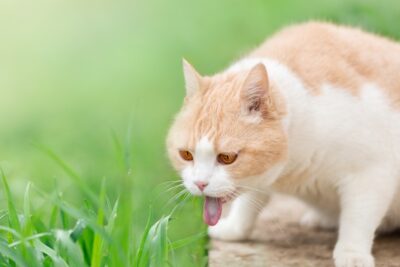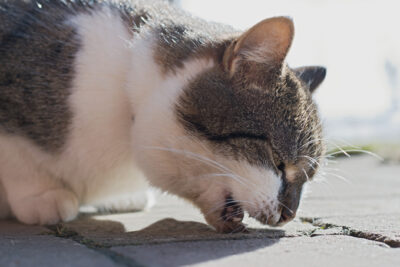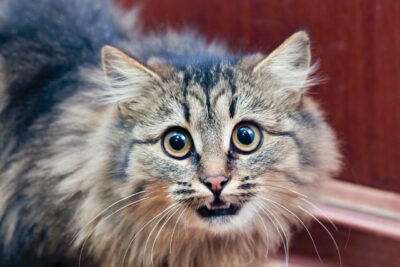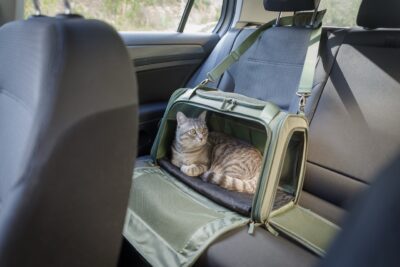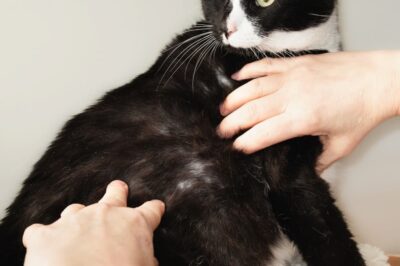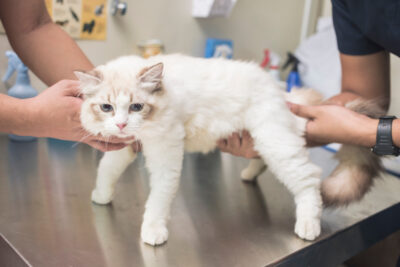Coronavirus in Cats

Overview
- This virus affects between 35 and 80 percent of cats worldwide.
- Feline coronavirus is known as an ‘enteric’ coronavirus, because it affects the gut.
- Cats generally get diarrhea for 2-4 days and then appear to recover.
- The biggest concern about coronavirus in cats is its ability to mutate from the benign form to the severe and often-fatal Feline Infectious Peritonitis (FIP).
- It is highly unlikely that the common feline coronavirus needs veterinary intervention.
*Please note: This article is about common coronaviruses in cats. It is NOT about COVID-19, the 2020 pandemic.
Coronavirus is a common virus that affects cats worldwide. It impacts about half of the cat population, but symptoms are not serious and may not even be noticed by pet parents.
In a very small number of cats, the virus mutates to a very serious form called Feline Infectious Peritonitis (FIP), which can be deadly.
Read on to learn more about the causes, symptoms, and treatment options for common coronaviruses in cats.
What is the Feline Coronavirus?
A coronavirus is one of a family of viruses named for their shape—corona means “crown” or “halo,” and coronaviruses are said to be crown shaped. There are over 50 different viruses in this family, infecting mammals and birds all over the world with gut or respiratory problems.
Feline coronavirus is one of the coronaviruses that affect our household pets. Although distantly related to COVID-19, the common feline coronavirus is not contagious to humans, does not transmit to humans, and cannot cause symptoms in humans. This virus affects between 35 and 80 percent of cats worldwide, but the symptoms are generally mild and may even go unnoticed by cat owners.
Unlike the human coronavirus, which affects the respiratory tract, feline coronavirus is known as an ‘enteric’ coronavirus, because it affects the gut. Cats generally get diarrhea for 2-4 days and then appear to recover. It doesn’t affect other species, but is extremely contagious to other cats.
What Causes Coronavirus in Cats?

Feline coronavirus spreads from cat to cat through the fecal-oral route. This means that affected cats pass viral particles in their feces, and other cats pick it up by eating the virus or inhaling viral particles. This can happen if they walk over contaminated ground, or groom after using a shared litter tray. It can also be spread by mutual grooming, or on skin or clothes of humans. It is rarely passed from mother to kittens through milk. Kittens usually experience coronavirus for the first time when they’re weaned, and their mother’s protective antibodies are no longer circulating in their systems.
Coronavirus is extremely common in multi-cat households and breeding establishments, because it spreads so quickly after entering a house. It is not thought to be more prominent in any particular breeds, although FIP, which is related to coronavirus, affects pedigree cat breeds more frequently.
Symptoms of Coronavirus in Cats

Coronavirus causes few symptoms and may even go unnoticed by pet parents. The most common symptom of coronavirus in cats is diarrhea for a couple of days. This can occur at any time, although it is commonly found in kittens 8-10 weeks old.
Other symptoms of coronavirus in cats may include:
- Mild diarrhea
- Mild vomiting
- Mild lethargy
- Fading Kitten Syndrome
- Mutation to FIP causing severe, fatal illness
The Feline Coronavirus and FIP

The biggest concern about coronavirus in cats is its ability to mutate from the benign form to the severe and often-fatal Feline Infectious Peritonitis (FIP). A very small percentage of cats that get coronavirus will eventually—weeks, months, or years later—get FIP.
This is caused by a mutation in the virus that causes it to attack white blood cells instead of gut cells. When this happens, a cat’s body is unable to clear the infection as it normally would and instead causes extreme illness and eventually death.
Unfortunately, it’s impossible to tell whether a cat is at risk of developing FIP after getting a coronavirus infection, and there are no preventative measures available.
Diagnosing Coronavirus in Cats

Veterinarians rarely need to diagnose coronavirus, because most cats clear the infection with few if any clinical signs. However, if pet parents are bringing in a new cat to the house, or want to know the coronavirus status of their cat for any reason, there are tests available.
One of the most common is a patient-side snap test, which tests for antibodies to the virus in the blood. The veterinarian will take a small amount of blood and put it into a well, then wait for blue lines to appear—kind of like a pregnancy test. This test does not prove that a cat currently has coronavirus, but does show that they’ve contracted it at some point in the (probably recent) past. It doesn’t tell if they are shedding coronavirus or at risk of passing it onto other cats.
It is also possible to test for coronavirus in feline feces. The feces are sent to the laboratory and they test for particles of the virus. This is usually done as part of a panel to investigate diarrhea, but finding coronavirus in this result doesn’t necessarily mean that it’s causing the diarrhea. This is because, with up to 80 percent of cats in multi-cat households being infected, there’s a strong chance that the coronavirus would be present regardless of the cause of the diarrhea.
There are no tests to determine whether or not coronavirus will mutate to FIP.
How to Treat Coronavirus in Cats

It is highly unlikely that the common feline coronavirus needs veterinary intervention. It is very benign and rarely causes symptoms that are of concern.
For this reason, there are no specific treatments for coronavirus. For kittens or adult cats that have had diarrhea for a few days, anti-diarrheal medication may be given. Oral rehydration solution may also be recommended in cats that have had profuse diarrhea or vomiting in order to replace lost fluids.
However, it’s important to remember that if the symptoms are that severe, coronavirus is unlikely to be the cause.
Medications for Cat Coronavirus
As mentioned, medications are often not necessary to treat coronavirus in cats, but for cats with diarrhea, veterinarians may prescribe the following:
- Pre- and probiotics such as Bifidobacterium, Enterococcus faecium and mannan-oligosaccharides, to encourage good gut health.
- Anti-emetics such as maropitant or ondansetron to reduce nausea and vomiting
- Oral rehydration solutions containing a specific mix of salts and glucose to replace that lost with vomiting or diarrhea.
General Cost of Treatment for Feline Coronavirus
Coronavirus treatment in cats is rarely necessary. If you do decide to get some probiotics for a mild case of diarrhea, a vet visit and prescription is likely to set you back less than $150.
If your cat develops FIP, investigation and treatment can cost a lot more. For more information, see our article on FIP.
Whether your cat is being treated for Coronavirus or develops FIP, costs can add up quickly. Put your mind at ease with a pet health insurance policy. Speak to an agent about a policy that offers coverage within your budget. Fortunately, there are plenty of options and price points to accommodate your needs.
How to Prevent Coronavirus in Cats

There is a vaccine for coronavirus in cats, but it is not often used. This is because it cannot be given before 16 weeks of age, and the vast majority of cats contract coronavirus at 8-10 weeks of age, rendering the vaccination pointless.
Where coronavirus is a severe problem, for instance in affected shelters or breeding establishments, it may be possible to isolate a mother cat for long enough that she clears a current infection and then doesn’t get re-infected before giving birth. The kittens then need to be weaned several weeks earlier than usual and stay in isolation until they can be vaccinated. This is stressful for both mother and kittens and is not generally recommended due to the benign nature of the virus.
